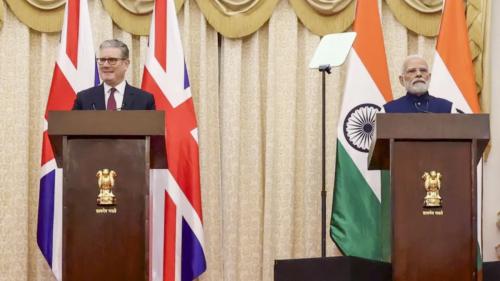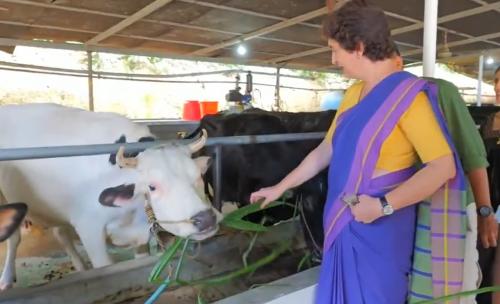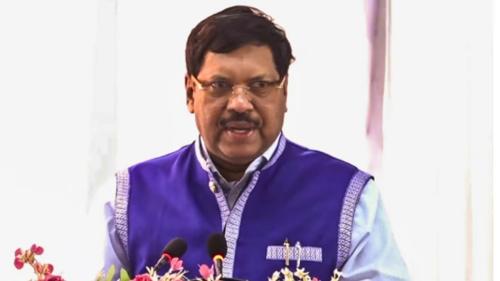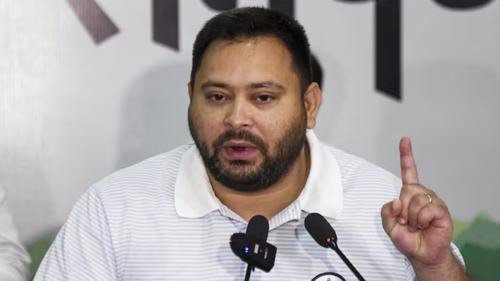Congress MP and Leader of the Opposition in the Lok Sabha, Rahul Gandhi, on Thursday launched a detailed attack on the Election Commission of India (ECI), alleging large-scale voter deletions in Congress strongholds ahead of the 2023 Karnataka Assembly elections. While Gandhi did not release the highly anticipated “hydrogen bomb” of evidence, he presented what he described as “100% proof” of systematic manipulation, citing cases from Karnataka’s Aland constituency and beyond.
Gandhi’s allegations focused on three individuals—Godabai, Suryakant, and Nagaraj—whose actions, he claimed, exposed an orchestrated attempt to delete votes in favor of political opponents. According to Gandhi, these deletions were not isolated incidents but part of a centralised operation using software to manipulate electoral rolls.
Case 1: Godabai
Gandhi’s first example involved a 63-year-old voter named Godabai. He alleged that a fake login was created using her name to submit deletion forms for 12 of her neighbors. Gandhi emphasized that the phone numbers used to process these deletions were not even from Karnataka, raising questions about the scale and coordination of the alleged activity. He also highlighted that these deletions targeted booths where Congress had previously performed strongly, with eight out of ten booths won by Congress in the 2018 elections.
"Godabai has no idea. These numbers used to delete voters aren’t even from Karnataka. Where are they operating from?" Gandhi asked during the press conference, reinforcing the claim that this was a centralised, software-driven operation.
Case 2: Suryakant
The second example cited was Suryakant, who reportedly submitted 12 deletion applications in just 14 minutes, including that of a voter named Babita Choudhari. Gandhi called both individuals to the stage to highlight the improbability of completing such tasks manually. The speed and volume, he argued, suggested automation and deliberate targeting of specific voters.
Case 3: Nagaraj
Gandhi’s third example, Nagaraj, allegedly submitted two deletion applications within 36 seconds at 4:07 a.m. Gandhi stressed the unusual timing and rapid submission as evidence that standard manual procedures could not explain the actions. He argued that these patterns indicated a highly organised and pre-planned voter manipulation effort.
Beyond Karnataka: Nationwide Allegations
Gandhi also claimed that similar voter deletion attempts were observed in Maharashtra, Haryana, and Uttar Pradesh, disproportionately affecting minorities, Dalits, and Congress supporters. He accused the Chief Election Commissioner of shielding those allegedly responsible and warned that these practices threatened the integrity of India’s democratic process.
Election Commission Responds
In response, the Election Commission termed Gandhi’s allegations as “baseless” and reiterated that no voter deletion can be conducted online by any member of the public. The ECI clarified that every deletion follows due process, including notifications and opportunities for affected individuals to be heard, underscoring the safeguards in place to prevent mass manipulation.
Analytical Perspective
While Gandhi’s allegations highlight potential vulnerabilities in voter registration systems, the evidence remains largely anecdotal at this stage. The examples presented focus on speed, timing, and software use, which may warrant closer investigation by authorities to ensure transparency. Analysts note that if verified, such claims could raise serious questions about the integrity of electoral rolls and the mechanisms used to safeguard voters’ rights. At the same time, the ECI’s categorical dismissal points to the need for verified documentation and independent audits before drawing conclusions.








